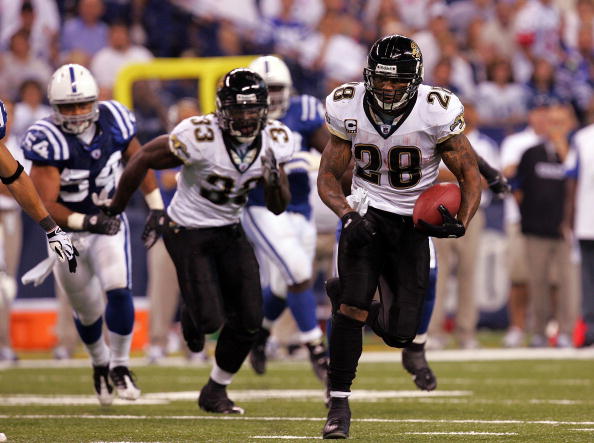On a recent episode of 60 Minutes, we saw yet another example — as previously showcased in the ESPN ’30 for 30′ doc Broke — of professional athletes losing millions of dollars due to bad investments.
This time it was a group of high-profile NFL players who were talked into investing in electronic bingo by prominent financial adviser Jeff Rubin. The deal went disastrously. The players — including the likes of Fred Taylor and Vernon Davis — lost a total of $43 million thanks to Rubin. The NFL Players’ Association didn’t figure out the illegitimacy of the deal until it was too late.
According to 60 Minutes, the players were brought into a meeting in 2008 with a sales pitch. Rubin wanted the players to invest in electronic bingo, which Rubin claimed was sprouting up throughout Alabama. The sales pitch resulted in around 40 players investing in the gambling venture.
Little did the players know that Rubin was in a bad financial situation and was doing this to try and overcome other financial problems.
Jeff Rubin desperately needed the money because in April 2008 the IRS filed a federal tax lien against him in the amount of $440,000. On top of that, he was underwater on his $3 million house.
Armen Keteyian (60 Minutes reporter): And you’re responsible, Jeff, for managing other people’s money, advising them. And you’re in a financial mess.
Jeff Rubin: It was a rough time. I mean the only way I could explain it is, I went over my head on my house. And that was probably a huge mistake for me.
Aside from not disclosing his financial problems, Rubin failed to inform the investors of the risks that came along with this investment. This included the fact that the governor of Alabama was trying to ban gambling from the county in which the electronic bingo games free to play were to be installed.
60 Minutes has also learned that a document known as a subscription agreement which outlines risks to investors was not produced until January 2010, long after players had already poured tens of millions of dollars into Country Crossing. In bold letters, the subscription agreement stated that “electronic Bingo operations…may be characterized as illegal gambling under Alabama law”…in a sworn deposition two years ago, Rubin was asked if his players ever received that subscription agreement. His reply: “I have no idea.”
The governor proved successful, and the machines were quickly taken out.
In mid-January 2010, country music stars were on hand for Country Crossing’s official opening. The crowds poured in, the electronic Bingo machines were humming and then, two weeks later, at 4:00 am, a seemingly endless caravan of 135 cars carrying state troopers appeared out of the night to descend on Country Crossing. They were coming for the electronic Bingo machines.
Fred Taylor: It was a sick feeling. It was a very sick feeling, very sick feeling.
Armen Keteyian: You call Rubin?
Vernon Davis: I called Rubin and of course, ‘Oh, it’ll be OK. It’ll be just fine. We’ll make, we’ll make it work.’
Armen Keteyian: Doesn’t turn out to be all right.
Vernon Davis: It’s a nightmare.
Country Crossing eventually went bust. Today, all that remains open is a pavilion where electronic Bingo has been replaced by old-fashioned paper bingo. The letters B-I-N-G-O cost NFL players $43 million. Stars like Ray Lewis and Terrell Owens got burned, as did players earning smaller paychecks.
Fred Taylor: A lot of guys had to, their homes were foreclosed on or short sold. Some repossessions. A couple of guys have had to take loans that they don’t necessarily know how they’re gonna pay them back.
Rubin has since lost his licensing from multiple organizations to practice financial planning.
Aside from Rubin’s shady tactics, it appears the NFLPA could’ve done a better job with vetting Rubin and other financial planners that work with players. There have been plenty of instances of players being burned by sketchy financial planners.
Though the NFLPA can’t be held liable, it would probably be a good idea for them to start helping out the players it represents. Too many players are being burned from this and all the NFLPA can show for itself is a CBA that doesn’t help them and the fact that it’s the only major pro sport without guaranteed contracts.
But for now, all we have are angry players who have lost millions. I think Taylor’s words about Rubin say it all.
Jeff was a crook. And Jeff is a thief. He’s a liar. He’s a con. He’s deceiving. He’s all of those things.







